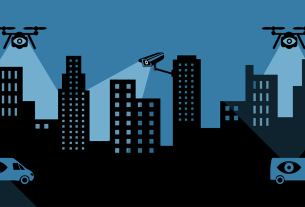Los Angeles implemented a so-called “mansion tax”. At a rate of 4% for real estate purchases between 5 and 10 million dollars and 5.5 percent for properties over ten million dollars. All in all, the tax is expected to bring in about 670 million dollars of revenue. The money is mend to finance affordable housing and thus preventing people from becoming homless.
The tax, officially known as “Measure ULA” was agreed upon by the state legislator after a referendum in November 2022 as close to 60% of voters cast their ballot in favour of the proposed law. Los Angeles being the city with the highest number of homeless people in the country, it’s little wonder that such a tax comes to fruition. California in general is also known as the second most expensive state when it comes to real estate, only being topped by Hawaii.
Under the new tax, a millionaire selling a house worth 5 million dollars would have to pay 200 thousand dollars to the government. To put the necessity of action in the city of LA into perspective, the recent crises have made the number of homeless people skyrocket to around 42,000 people in February 2022. In 2016 the number was closer to 28,000 people without a home according to an article published in the New York Times. Other estimates by the “US department of housing and urban development” put the number of homeless people in the LA at a staggering 65.111 people.
“Mass Panic”: Real Estate Owners get creative in trying to avoid the new Taxes
Despite the relatively low sum of tax money in comparison to the enormous profits made in the real estate market, millionaires and celebrities sought for evermore creative and desperate ways to avoid contributing to improving societal living standards. According to “The Guardian“, one desperate super rich homeowner of a 16.5-million-dollar mansion was going as far as to gift a supercar to whoever buys his house, just to get out of paying around 900 thousand dollars in tax.
Others are taking different approaches to avoid paying taxes. A legal challenge has been put before court, claiming the tax violates the Californian constitution. The outcome of the challenge is, as of now, still open, and it will very likely take a while until any result comes of it.
The Tax would only affect 4 Percent of the real estate transactions in LA
According to the luxury real estate platform “redfin” the median selling price for property in California is just short of a million dollars. It is hovering around 900 thousand dollars. The tax therefore would only affect about 4% of real estate transactions in the city.
Interesting claims come from real estate agents working for the super-rich. The tax is set too low, as 5 million dollars for a home does not qualify as a mansion. “Five million dollars is certainly not luxury. It’s a nice house, in a nice area. It’s not what most people would consider a luxury house in a prime area”, says real estate agent Scott Tamkin.
Critics launch massive PR campaign to sway public opinion
But he is not the only real estate agent trying to tell the average person that a five-million-dollar home (about 4000 square foot in Beverly Hills according to Josh Altman, real estate agent and reality TV star) is not a luxury. A massive PR campaign seems to have been launched to sway public opinion against the tax with multiple large US news outlets writing pieces against the proposed tax, despite the scientific, political, public support for the law.
The new tax will bring in about 627 Million Dollars
It’s estimated that the tax will bring in about 627 million dollars, according to an article published by the Guardian. This still enormous sum is almost 400 million dollars short of the sum initially expected being a billion dollars, but still more than triples the amount of revenue collected from the before active transfer tax, which is raking in about 200 million dollars per year.
Multiple universities and analysts, above all the University of California (UCLA) have recently come forward to counteract the multi-millionaires PR offensive to roll back the tax. They are saying that the money collected and the impact on the housing market will really help improve the homelessness crisis in Los Angeles.



